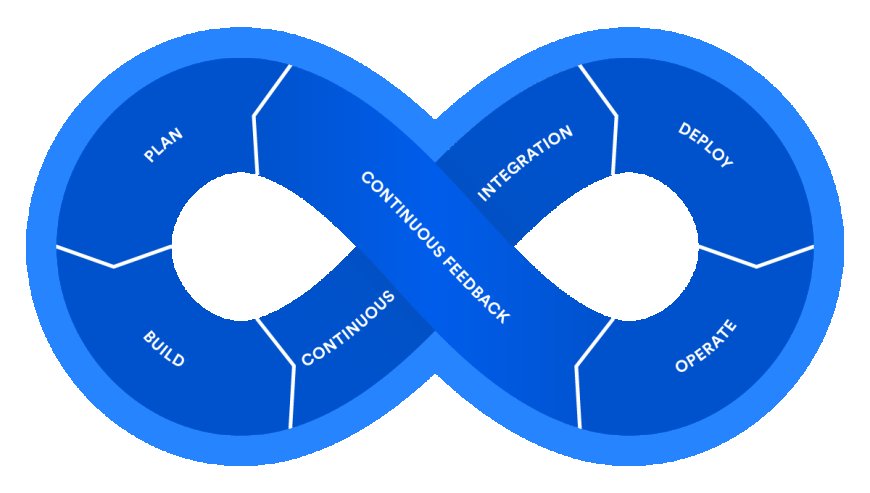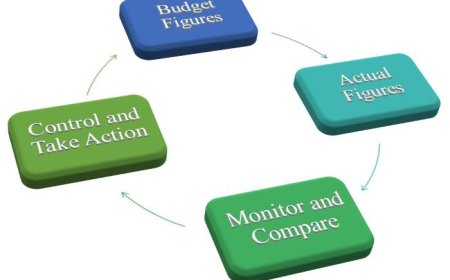DevOps and Agile Methodologies: A Synergistic Approach to Software Development
Discover how the integration of DevOps and Agile methodologies enhances software development. Learn about their synergistic approach that improves collaboration, accelerates delivery cycles, and boosts product quality.

Introduction
In recent years, the software development landscape has been significantly transformed by the adoption of Agile methodologies and DevOps practices. Both approaches advocate for continuous improvement, rapid delivery, and enhanced collaboration, yet they operate on different fronts. Agile primarily focuses on the software development lifecycle (SDLC) by promoting iterative development and customer collaboration, while DevOps extends beyond development to include operational practices that enhance the deployment and maintenance of software. By integrating Agile and DevOps, organizations gain a synergistic approach that amplifies efficiency, accelerates release cycles, and fosters a culture of collaboration.
This essay delves into the core principles of Agile and DevOps, explores how they complement each other, and outlines the benefits of their integration in modern software development.
Agile Methodologies: A Focus on Iteration and Collaboration
At the heart of Agile lies the commitment to iterative development, where software is built incrementally through collaborative efforts among cross-functional teams. Agile methodologies, such as Scrum and Kanban, emphasize flexibility, allowing teams to adapt to changing requirements and customer feedback effectively. This responsiveness not only enhances product quality but also cultivates a sense of ownership among team members, leading to increased motivation and innovation. By prioritizing customer collaboration, Agile ensures that the final product aligns closely with user needs, ultimately driving satisfaction and loyalty.
DevOps: Bridging Development and Operations
DevOps, on the other hand, seeks to dissolve the silos that traditionally exist between development and operations teams. By fostering a culture of shared responsibility, continuous integration, and automated deployment, DevOps enhances the efficiency of the software delivery pipeline. This approach minimizes bottlenecks and reduces the time it takes to bring new features and fixes to market. With practices such as Continuous Integration (CI) and Continuous Deployment (CD), organizations can achieve higher levels of reliability and stability in their software, allowing for more frequent and dependable releases.
The Synergy of Agile and DevOps
When Agile and DevOps are integrated, the benefits multiply. Agile’s iterative cycles align seamlessly with DevOps’ automated processes, creating a streamlined workflow that enhances both development speed and operational reliability. This integration fosters a culture of continuous feedback, enabling teams to learn and adapt quickly. As a result, organizations can respond to market demands more effectively, reduce time-to-market, and improve overall product quality.
the integration of Agile methodologies and DevOps practices represents a paradigm shift in software development. By embracing both approaches, organizations can cultivate a collaborative environment that not only drives innovation but also ensures that software is delivered efficiently and meets the evolving needs of users. This holistic approach positions businesses to thrive in an increasingly competitive landscape, where agility and operational excellence are paramount.
Understanding Agile Methodologies
Agile methodologies emerged as a response to the rigidness of traditional Waterfall development models, which often resulted in extended timelines and misaligned project outcomes with user needs. The Agile Manifesto, established in 2001, emphasizes four key values:
-
Individuals and interactions over processes and tools: Prioritizing human communication and teamwork fosters creativity and adaptability. This focus on collaboration encourages teams to leverage diverse skill sets and perspectives, ultimately leading to innovative solutions that might not have materialized in a more hierarchical structure.
-
Working software over comprehensive documentation: The primary goal of software development is delivering functional software that meets customer requirements. While documentation is not disregarded, Agile methodologies advocate for just enough documentation to support development, allowing teams to concentrate on producing high-quality software that provides tangible value to users.
-
Customer collaboration over contract negotiation: Engaging stakeholders throughout the project enhances understanding and alignment with user needs. This continuous dialogue ensures that the development process remains user-centric, allowing teams to pivot quickly based on feedback and changing requirements. By fostering a partnership with customers, Agile teams can better anticipate and respond to market demands, ultimately leading to more successful product outcomes.
-
Responding to change over following a plan: Agile methodologies encourage flexibility and adaptability in the face of evolving project requirements. This principle is particularly relevant in today’s fast-paced digital landscape, where technological advancements and market dynamics can shift rapidly. Agile teams are equipped to embrace change, ensuring that they remain aligned with business objectives and user expectations.
Popular Agile frameworks, such as Scrum and Kanban, implement these principles through iterative development cycles, fostering an environment where cross-functional teams can collaborate effectively to deliver value to customers incrementally. Scrum, for instance, organizes work into time-boxed sprints, allowing teams to focus on delivering specific features while continuously reflecting on and improving their processes. Conversely, Kanban emphasizes visualizing work in progress, enabling teams to optimize flow and identify bottlenecks, thus enhancing efficiency.
Agile methodologies represent a paradigm shift in software development, promoting a culture of collaboration, responsiveness, and continuous improvement. By embracing these principles, organizations can not only enhance project outcomes but also cultivate a more dynamic and engaged workforce, ultimately driving success in an increasingly competitive landscape.
Understanding DevOps
DevOps, a term derived from "development" and "operations," emerges as a cultural and professional movement that emphasizes the collaboration between software developers and IT operations teams. The primary aim of DevOps is to shorten the software development life cycle and provide high-quality software continuously. This paradigm shift is not merely a set of practices but a transformative approach that redefines how organizations think about software delivery.
Key Principles of DevOps
Collaboration and Communication: At the heart of DevOps lies the belief that breaking down silos between development and operations teams fosters a culture of shared responsibility for deliverables. This collaboration encourages cross-functional teams to work together throughout the entire software development process, from ideation to deployment and maintenance. By nurturing an environment where open communication is prioritized, organizations can enhance problem-solving capabilities and drive innovation.
Automation: Automation is a cornerstone of DevOps practices. By automating repetitive tasks within the development, testing, and deployment processes, teams can significantly increase efficiency and reduce the potential for human error. This not only accelerates the release cycle but also allows team members to focus on higher-value activities, ultimately leading to more robust and reliable software solutions.
Continuous Integration and Continuous Delivery (CI/CD): CI/CD practices are pivotal in the DevOps framework. Regularly merging code changes and automatically deploying them to production environments minimizes deployment risks and enhances the speed of delivery. This iterative approach allows teams to respond swiftly to user feedback and market demands, ensuring that software remains relevant and competitive.
Monitoring and Feedback: Implementing continuous monitoring of applications and infrastructure is essential for gaining insights into system performance. This practice enables teams to identify issues proactively and make informed decisions that drive performance improvements. By establishing feedback loops, organizations can refine their processes and tools, ensuring that they remain aligned with business objectives and customer needs.
Cultural Shift: Beyond technical practices, embracing DevOps requires a cultural shift within organizations. It calls for a commitment to continuous learning, experimentation, and resilience. By cultivating a mindset that values adaptability and encourages risk-taking, organizations can better navigate the complexities of modern software development.
By promoting collaboration and automation, DevOps enhances not only development efficiency but also operational stability and reliability. As organizations continue to adopt this holistic approach, they position themselves to thrive in an increasingly dynamic digital landscape, ultimately delivering greater value to their customers and stakeholders.
The Synergy Between Agile and DevOps
While Agile and DevOps serve different purposes within the software development ecosystem, they are inherently complementary. Their integration creates a cohesive environment that allows organizations to adapt better to the fast-paced demands of modern software delivery. Understanding their synergy involves recognizing the interplay between the development and operational facets of software creation:
-
Enhancing Collaboration The Agile framework promotes collaboration among team members during the development phase, while DevOps extends this collaboration to include operations teams in the software release process. By fostering a shared understanding of project goals and collaborating on everything from design to deployment, both development and operations teams can work more effectively toward achieving common objectives. This alignment not only breaks down silos but also encourages cross-functional teams to innovate and solve problems collectively, resulting in a more unified approach to software development.
-
Accelerating Delivery Agile's iterative approach naturally leads to frequent delivery of functional software, while DevOps ensures that deployment processes are seamless and efficient. By integrating Continuous Integration and Continuous Deployment (CI/CD) pipelines with Agile sprints, organizations can automate testing and deployment, accelerating time-to-market. This capability enables teams to respond quickly to user feedback and evolving requirements, ultimately enhancing customer satisfaction. The result is a dynamic environment where businesses can pivot swiftly in response to market changes, ensuring they remain competitive.
-
Improving Quality Quality assurance is a shared responsibility in the synergy between Agile and DevOps. Agile promotes iterative testing and customer feedback, allowing teams to identify issues early. DevOps complements this by automating testing processes and maintaining a robust CI/CD pipeline, ensuring that only high-quality code progresses through the deployment stages. Together, these practices create a culture of quality that permeates the entire development life cycle. By embedding quality checks into every stage, organizations can minimize errors and enhance the reliability of their software products.
-
Cultivating a Culture of Learning Implementing Agile and DevOps fosters a culture of continuous learning and improvement. Agile retrospectives encourage teams to reflect on processes, while DevOps practices promote knowledge sharing and collaboration across teams. This environment supports experimentation and innovation, allowing teams to learn from failures and successes alike. As a result, organizations can evolve their practices, adapt to new technologies, and ultimately drive better outcomes.
The synergy between Agile and DevOps is not merely a trend but a strategic imperative for organizations aiming to thrive in an increasingly complex digital landscape. By embracing their complementary strengths, businesses can enhance collaboration, accelerate delivery, improve quality, and cultivate a culture of continuous learning, positioning themselves for sustained success.
Benefits of Integrating Agile and DevOps
Organizations that adopt both Agile and DevOps methodologies experience several advantages that not only enhance their operational efficiency but also position them favorably in competitive markets.
Faster Time-to-Market: The combination of continuous delivery practices with Agile sprints allows for quicker feature releases, keeping pace with the dynamic demands of the market. By breaking down projects into manageable increments, teams can deliver value to customers more rapidly, ensuring that organizations remain relevant and responsive to emerging trends.
Increased Flexibility: Agile’s adaptability to changing requirements, coupled with DevOps’ scalable and automated processes, equips organizations to pivot quickly based on user feedback or market changes. This flexibility fosters a culture of innovation, as teams can experiment with new ideas without the fear of significant setbacks. The iterative nature of Agile allows for ongoing adjustments, while DevOps practices ensure that these changes can be deployed seamlessly.
Enhanced Customer Satisfaction: Regular delivery of functional software, supplemented by rigorous testing and monitoring, results in improved user experiences and satisfaction levels. By prioritizing customer feedback in the Agile framework and employing DevOps tools for continuous monitoring, organizations can address pain points swiftly and effectively. This customer-centric approach not only builds loyalty but also drives word-of-mouth referrals, further enhancing market presence.
Optimized Resource Utilization: Automation of manual processes reduces team burdens, allowing members to focus on more strategic endeavors rather than repetitive tasks, thus optimizing overall resource utilization. By leveraging DevOps automation tools, teams can streamline workflows, reduce bottlenecks, and allocate human resources to high-impact projects that foster growth and innovation.
Reduced Risk: Regular integration, testing, and deployment ensure that potential issues are identified early and addressed before reaching production, significantly lowering the risk of major breakdowns and system failures. This proactive approach to risk management not only protects the organization’s reputation but also instills confidence in stakeholders and customers alike.
Cultural Transformation: Beyond the technical benefits, integrating Agile and DevOps fosters a cultural shift within organizations. It encourages collaboration, transparency, and shared responsibility across teams. This cultural transformation cultivates an environment where continuous learning and improvement are not just encouraged but are a fundamental aspect of the organizational ethos.
The integration of Agile and DevOps methodologies not only streamlines processes and enhances product delivery but also transforms organizational culture, ensuring that businesses are well-equipped to navigate the complexities of modern markets.
Conclusion
The integration of Agile methodologies and DevOps practices offers a synergistic approach to software development that enhances collaboration, accelerates delivery, improves quality, and fosters a culture of continuous learning. As organizations seek to keep pace with technology and market demands, the adoption of both frameworks empowers teams to create high-quality software efficiently and responsively.
In an environment that increasingly prioritizes speed and agility, the harmonious collaboration of Agile and DevOps can transform the software development landscape, enabling organizations to thrive in an ever-evolving digital world. This transformation is not merely a trend; it represents a fundamental shift in how teams operate, emphasizing the importance of cross-functional collaboration and the breaking down of silos.
By embracing Agile principles, organizations can prioritize customer feedback and iterative development, ensuring that the end product aligns closely with user needs. Meanwhile, the implementation of DevOps practices facilitates seamless integration and continuous delivery, allowing teams to deploy updates and new features at an unprecedented pace. This dual approach creates a feedback loop that enhances responsiveness, as teams can quickly adapt to changes and refine their solutions based on real-world performance and user input.
Furthermore, the cultural shift fostered by the combination of Agile and DevOps encourages a mindset of continuous improvement. Teams are motivated to experiment, learn from failures, and celebrate successes, leading to innovation and enhanced problem-solving capabilities. This culture of learning not only boosts team morale but also attracts top talent, as professionals are drawn to environments that promote growth and development.
As organizations navigate the complexities of digital transformation, the synergy between Agile and DevOps becomes increasingly vital. It equips teams with the tools and frameworks necessary to respond to market shifts and technological advancements effectively. By leveraging automation, continuous integration, and deployment pipelines, organizations can ensure that their software development processes are not only efficient but also resilient.
The integration of Agile and DevOps is more than just a strategic alignment; it is a comprehensive approach that redefines how software is developed, delivered, and maintained. Organizations that embrace this synergy will not only enhance their competitive edge but also position themselves as leaders in innovation and customer satisfaction in the fast-paced digital landscape. The future of software development lies in this collaborative spirit, where agility meets operational excellence, paving the way for sustainable success.
What's Your Reaction?
 Like
0
Like
0
 Dislike
0
Dislike
0
 Love
0
Love
0
 Funny
0
Funny
0
 Angry
0
Angry
0
 Sad
0
Sad
0
 Wow
0
Wow
0










































